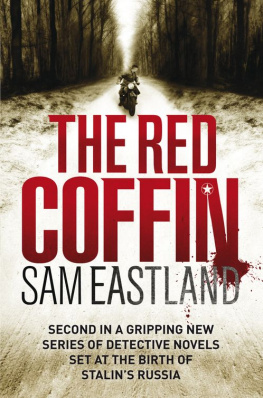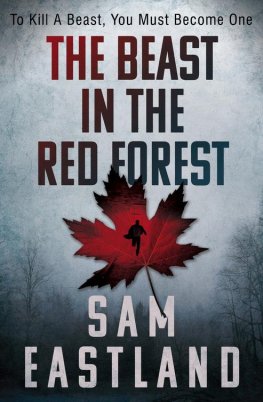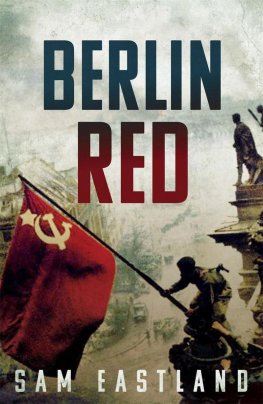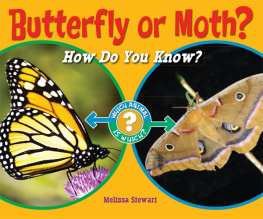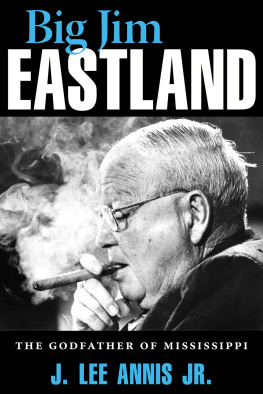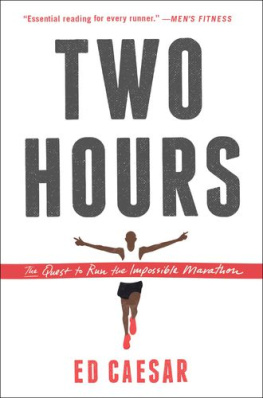Sam Eastland - Red Moth
Here you can read online Sam Eastland - Red Moth full text of the book (entire story) in english for free. Download pdf and epub, get meaning, cover and reviews about this ebook. genre: Detective and thriller. Description of the work, (preface) as well as reviews are available. Best literature library LitArk.com created for fans of good reading and offers a wide selection of genres:
Romance novel
Science fiction
Adventure
Detective
Science
History
Home and family
Prose
Art
Politics
Computer
Non-fiction
Religion
Business
Children
Humor
Choose a favorite category and find really read worthwhile books. Enjoy immersion in the world of imagination, feel the emotions of the characters or learn something new for yourself, make an fascinating discovery.

- Book:Red Moth
- Author:
- Genre:
- Rating:3 / 5
- Favourites:Add to favourites
- Your mark:
- 60
- 1
- 2
- 3
- 4
- 5
Red Moth: summary, description and annotation
We offer to read an annotation, description, summary or preface (depends on what the author of the book "Red Moth" wrote himself). If you haven't found the necessary information about the book — write in the comments, we will try to find it.
Red Moth — read online for free the complete book (whole text) full work
Below is the text of the book, divided by pages. System saving the place of the last page read, allows you to conveniently read the book "Red Moth" online for free, without having to search again every time where you left off. Put a bookmark, and you can go to the page where you finished reading at any time.
Font size:
Interval:
Bookmark:
Sam Eastland
Red Moth
Russia
August 1941
A thousand feet above the Russian front
A thousand feet above the Russian front, a German scout plane weaved among the clouds, searching for a place to land. The aircraft was a Fiesler 156, whose broad wings and spindly looking wheel struts had earned it the nickname of Stork. The pilot, Hanno Kosch, was a captain in the Luftwaffe. Beside him, nervously clutching a briefcase, sat a lieutenant of the Waffen SS named Karl Hagen.
One hour before, the Stork had taken off from a forward operations base of Army Group North, just outside the town of Luga, bound for a grass strip runway near the village of Vyrista, a short distance by air to the north-east.
Kosch tilted the plane and squinted down at the ground below, searching for some contour of the earth which corresponded to the flight-plan chart clipped to a map board on his knee. I dont see it, he said.
Maybe we should turn back, replied Hagen, shouting to make his voice heard over the engine.
Its too late, replied the pilot. I gave you that chance half an hour ago and you refused. Now we dont have enough fuel to return to Luga. If we cant find the runway at Vyrista, our only chance is to set down in a field and start walking.
The Stork shuddered as it passed through a pocket of turbulence, causing Hagen to grip the briefcase even more tightly.
Whats in there, anyway? asked Kosch.
Something I have to deliver.
Yes, but what?
If you must know, its a painting.
You mean some priceless work of art like a Rembrandt or something?
Priceless yes. Rembrandt no.
Can I see it?
I dont think I can do that.
Oh, come on! Kosch persisted. Just so I can know why Ive been risking my life for the past hour.
Hagen considered this for a moment. Well, I suppose it wouldnt hurt to look. He unfastened the brass latch of the briefcase removed a canvas in a small wooden frame and held it up for Kosch to see.
Ill be damned, said Kosch. What is it? A butterfly?
Actually, replied Hagen, I believe its a moth.
It doesnt look that special. Kosch shrugged. But I guess Im no lover of art.
I dont like it any more than you do, Hagen told him as he slipped the painting back inside the briefcase and re-fastened the latch. All I want is to be rid of this thing and then I hope I never have to get inside an aeroplane again. Im not like you. I hate flying. I didnt sign up to be a bird.
You wont be a bird for much longer, Kosch told him, and neither will I, with fuel enough for five more minutes in the air.
How can we possibly have missed the airfield? demanded Hagen.
In these clouds, we could have missed the whole city of Berlin! Kosch growled with frustration. Its no use, Lieutenant. I have to start looking for a place to set us down. With those words, he began a gradual descent through the clouds. Raindrops speckled the Perspex canopy. Below them, the thatched roofs of a Russian village slid by, the whitewashed walls of the houses glowing warmly in the summer evening light. Spreading out from the village in all directions lay neatly planted fields of wheat, barley and rye, separated by reddish-brown dirt roads. There was no sign of people. It was the same with the other villages over which they had flown in this past hour. The entire population appeared to have vanished into thin air.
What is that? Hagen called out. Down there! Look!
Following Hagens gaze, Kosch glimpsed a wide expanse of manicured grass, cut through with ornate pathways. At the head of this park stood a huge building, painted blue and white, with what must have been hundreds of windows, set into gilded frames which gleamed blindingly out of the vivid green below. Another huge building, this one less ornate, stood off to one side. Other, smaller structures lay about the grounds, along with several large ponds. Koschs momentary fascination with the beauty of the architecture was followed by the burning of adrenalin in his guts as he realised how far they had strayed from their original course.
Its beautiful, admitted Hagen, somewhat reluctantly. I didnt know such things existed in Russia any more. It almost looks like a palace.
It is a palace! replied Kosch. It is the old village of Tsarskoye Selo, which the Soviets now call Pushkin. All that down there was once the summer estate of Tsar Nicholas II. There is the Catherine Palace, the Alexander Palace, the Lamskie Pond and the Chinese Theatre. I learned about them in an architecture class I took at university.
Now that we know where we are, said Hagen, how close are we to where we ought to be?
Kosch glanced down at his chart. According to this map, were almost thirty kilometres behind the Russian lines.
Thirty kilometres! Hagen exploded. You dont understand, Captain, this painting-
Kosch didnt let him finish. If we come around on a north-by-north-west heading, we might be able to reach our own lines before we run out of fuel. Banking sharply, Kosch turned the little scout plane towards the west on a course which took him directly over the vast rooftop of the Catherine Palace.
It looks deserted, said Hagen, his forehead pressed against the heavy Perspex of the side window. Where did they all go?
Suddenly the plane lurched as if it had flown into an invisible wall. This jolt was accompanied by a sound which reminded Hagen of the pebbles he used to throw by the handful at a corrugated-iron shed at the bottom of his grandfathers garden. What happened? he shouted. Whats going on?
Kosch did not reply. He was too busy struggling to keep the plane steady.
Bright yellow tracers, like a shower of meteors, flickered past the wings. Bullets clattered through the fuselage. In the next instant, a white stream of vaporising coolant poured from the cowling.
The firing died away as they cleared the palace grounds.
We must be out of range, Hagen said hopefully.
Its too late, Kosch told him. The damage has already been done.
What do you mean? Were still flying, arent we?
We have to land now, replied Kosch, before the engine catches fire. Look for a field, or a road not bordered by telegraph wires.
Were behind the lines!
On the ground, we stand a chance. If we stay up here any longer, we have none.
Seconds passed. The Storks engine began to sputter as the temperature gauge climbed into the red.
What about that? asked Hagen, pointing just beyond the starboard wing. Is that a runway?
Kosch peered through the blur of the glycol-smeared windscreen. I think it is! Its pretty crude, but I think I can get us down all right.
Thank God, murmured Hagen.
Kosch laughed. I thought you SS types didnt believe in God.
Ill believe in anything that puts me safely on the ground.
The Stork circled the airfield. At the far end of the runway stood a hangar, its roof painted dull olive green and overlaid with black amoeba-like shapes to camouflage it from above.
Kosch levelled the plane for a final approach, lowered the flaps to drop air speed, throttled back and came in for a landing.
The plane bounced once on its stilt-like legs, then settled on the ground. Silver threads of water sprayed up between the grass and tyres.
The pilot cut the engine and the Fiesler rolled to a stop with little room to spare on the short runway. As the blurred disc of the propeller stuttered to a halt. Kosch pressed his hand against the silver metal disc on his chest which connected the four seat straps, turned it to the left and then released the clips.
Hagen was still struggling with his straps, one of which had become tangled underneath the leather holster of the SS officers P38 pistol.
Kosch reached across and unfastened Hagens seat belt.
Folding back the canopy, Kosch climbed out of the plane and jumped down to the ground, followed closely by Hagen.
Font size:
Interval:
Bookmark:
Similar books «Red Moth»
Look at similar books to Red Moth. We have selected literature similar in name and meaning in the hope of providing readers with more options to find new, interesting, not yet read works.
Discussion, reviews of the book Red Moth and just readers' own opinions. Leave your comments, write what you think about the work, its meaning or the main characters. Specify what exactly you liked and what you didn't like, and why you think so.

